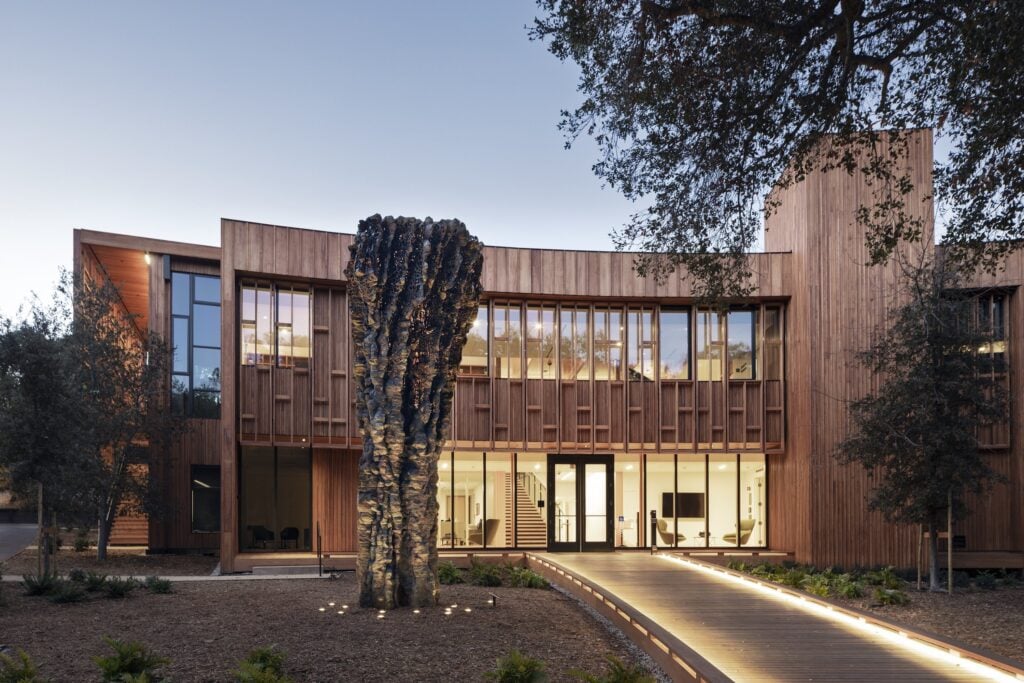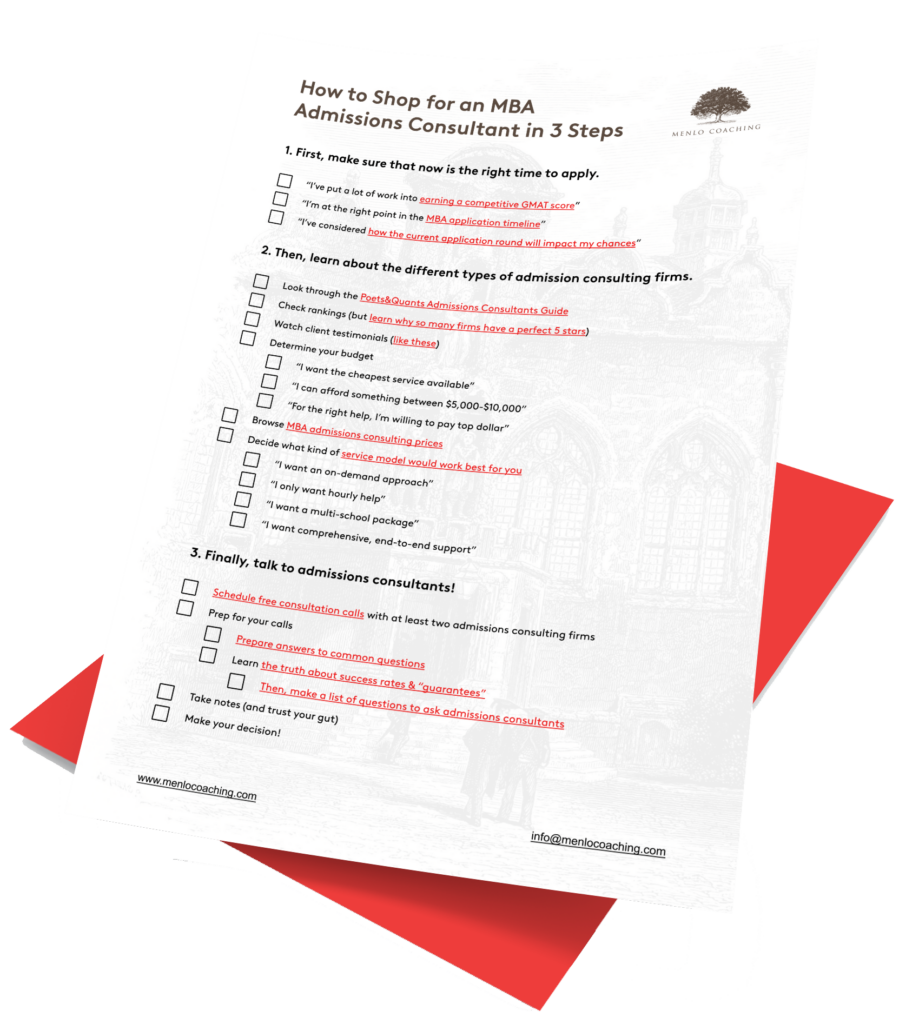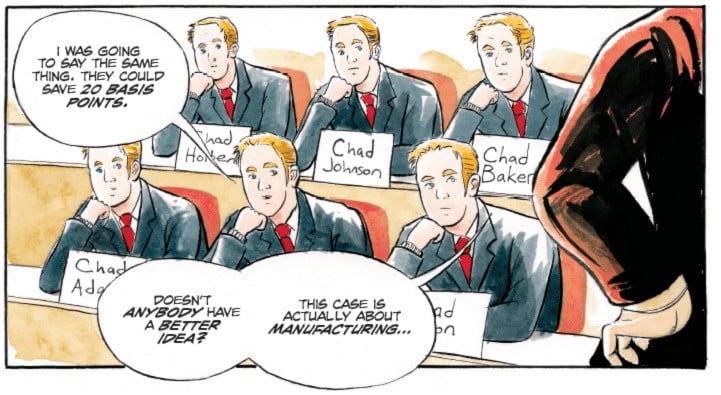Knight-Hennessy Scholars (KHS) is a highly attractive but highly selective scholarship program at Stanford University. Applicants who reach the final stage of the in-depth admissions process will be invited to two interviews:
Let’s look at how many candidates get through to this final interview stage and then discuss each interview in greater depth.

The short answer: only the very best applicants.
This is the final round of consideration in the KHS application process before offers are sent out. Up to 180 applicants are invited for these interviews (out of 8,000+ total applicants!). Around half of these finalists—a maximum of 100—can hope to be accepted into the program (the 2025 cohort consisted of 84 scholars).
To become one of these finalists, you first have to make it through the previous selection stages:
Only if you’re selected at both of these stages do you participate in the interviews.
The committee also checks on the status of your main Stanford graduate degree application throughout. That’s a separate application, but KHS won’t invite you to interview if you’re not still being considered for admission (or already admitted) to a Stanford degree program!
Those who are selected for this stage will be invited to two final evaluations:
If you reach this stage, you’ll be invited for both of these interviews—that is, everyone who does the online interview is expected to attend Immersion Weekend too. Both are mandatory for admission, and there’s no round of eliminations in between.
Our free, comprehensive checklist covers everything you need to shop for an MBA admissions consultant.

The online individual interview will take place before Immersion Weekend. These interviews are scheduled for mid-February. Your interview will last 20–25 minutes and will be conducted via Zoom. The call is recorded.
The online interview is proctored by a KHS staff member or associate who is trained to ask a standard set of questions to each candidate. When relevant, they’ll also ask further questions based on your responses.
This is not a member of the admissions committee—in other words, not the same person who subsequently evaluates your interview performance (see below).
In this interview, you will only be asked behavioral questions—questions designed to examine how you’ve displayed the qualities KHS is looking for in the past.
The KHS evaluation criteria are independence of thought, purposeful leadership, and civic mindset, and the questions will all be implicitly or explicitly tied to these criteria. Some typical examples of KHS behavioral questions might be
(Note that these are just examples, not the exact questions you will be asked.)
You should always answer the question with a concrete example: a story about how you’ve shown the particular quality in action—in your academic, professional, or personal life—not just assurances that you value that quality in the abstract.
You can’t know the exact questions you’ll be asked ahead of time, but you can be certain they will cover KHS’s three criteria (independence of thought; purposeful leadership; civic mindset). This narrows down the focus of your interview prep quite drastically.
You can therefore carefully plan out your own story in advance of the interview. Knowing the criteria you need to meet, think about the stories from your life that best demonstrate the requisite aspects of your personality. Come up with as many stories as you can, and try to decide which are your strongest options for each criterion.
Consider how you will tell each story:
Practice telling your story, perhaps with a friend or, better, a professional interview coach. How long does it take you to get through the story? Are there parts of your delivery that could be clearer or stronger? Do you stumble over any details? Do you know the answers to all foreseeable follow-up questions?
Behavioral questions form part of interviews for many academic programs and jobs; it’s likely you’ve encountered them before and will encounter them again. You can find expert guidance on how to approach behavioral questions on a variety of topics here.
Everyone invited to the online interview is also invited to Immersion Weekend, taking place March 6–7 on the Stanford campus. Your expenses (travel costs, accommodation, meals) are paid for by KHS, so you don’t have to pay additional costs to attend.
Immersion Weekend is where your second interview, the group interview, will take place, alongside some fellow candidates. But it’s also intended to be a preview of the Knight-Hennessy program, an opportunity to meet other potential scholars, and an exciting program including social events, presentations, group activities, and potentially a visit to your Stanford graduate program.
It’s common sense to aim to make a good impression on faculty and potential future scholars throughout Immersion Weekend. But note that the group interview is the only part on which you’re officially evaluated. The rest is essentially for your benefit, to give you a taste of what it’s like to be a Knight-Hennessy scholar. Try to enjoy it!

The interview itself lasts around 20 minutes and asks you to discuss just one issue—there will only be one prompt—in a group setting.
You’ll usually be interviewed as part of a group of three candidates. (In rare cases, it might be two or four if the number of candidates necessitates this.)
You won’t know who’s in your group until you enter the interview room; the point is to give unrehearsed answers to the prompt, not to plan out a strategy beforehand with your group.
You can expect your group to be diverse in terms of personal background and field of study, since part of what’s being evaluated is your ability to engage productively with other scholars across these kinds of divisions. Groups are therefore assigned with diversity in mind.
The group interview is conducted by current Knight-Hennessy scholars, who are trained on how to approach the task. In most cases, there will be three interviewers to match the three interviewees.
Beyond providing the prompt at the start, the interviewers in this case don’t take an active role in the conversation. You’ll discuss the topic with your fellow applicants, not with the interviewers. Their role is mainly to observe and take notes on the discussion, relaying their feedback to the evaluators afterward.
They may intervene if the conversation seems to be getting off track or one person is dominating the discussion, but in principle they are not active participants.
The prompt given in the group interview changes each year, and it is never revealed in advance. You’ll only find out the topic of your discussion when you enter the interview room. This is for the same reason you don’t know who’s in your group: KHS wants to assess how you respond on the spot.
What you do know in advance is that the interview will be a general discussion based on one prompt, not a series of different questions.
The prompt will be on a topic that lends itself to in-depth discussion and debate. The interviewers will not be looking for the “right answer” to the question, but rather observing how you engage with the topic and with the other finalists.
For example, you might get a prompt something like this:
Your group is a team of trusted advisors to the leader of a nation-state. The leader is considering how to respond to growing social unrest and has asked you for counsel. What counsel will you give?
(This is not a real past prompt; it’s just to give you an idea of their scope.)
To avoid giving any group of candidates an unfair advantage, the prompt won’t be too closely tied to any one field (e.g., applicants to the Stanford MBA program would have an advantage on business-themed questions). Even if you do happen to have extensive knowledge of the topic, the point isn’t to show off that knowledge but to engage thoughtfully with your peers.
The fact that you won’t know who is in your group or what topic you’ll discuss means that you’ll always have to think on your feet here. This is by design. Still, there are a few points to bear in mind to feel well prepared, know what to expect, and understand the format of the interview.
First, although you will not be asked to display deep specialist knowledge of a particular topic, it’s certainly a good idea to stay informed about current affairs.
You’ll be asked to talk about something that’s likely well outside your area of expertise—but at the same time, it won’t be anything truly esoteric. Having good general knowledge of, for instance, current political debates, technological developments, and the cultural zeitgeist will enhance your ability to speak intelligently on a variety of topics.
Second, it’s important to clearly understand the interview format. Are you collaborating with the other people in your group, or competing against them? Is it a team project or a debate?
In fact, this question is deliberately left very open. You might challenge other applicants if you disagree with what they’re saying, or you might aim to reach a consensus. There’s no single right way for the group dynamic to play out; it’s up to you and your peers to respond dynamically.
There are, of course, some wrong ways: Don’t try to dominate the conversation or attack other group members. Conversely, make sure you’re playing an active role and not just nodding along.
Be prepared to listen to others, express disagreement respectfully, and, when you do agree with your peers, seek thoughtful ways to build on their ideas rather than just repeating them.

Finally, prepping with an expert is always a valuable way to boost your confidence and develop a clear yet flexible strategy. Consider booking a consultation with our interview prep experts.
Once you’ve completed both these interviews, your performance on them (alongside the strength of your other application materials) will be evaluated to reach a final decision on whether to accept you as a scholar.
You’ll receive a final decision on March 17 (10 days after Immersion Weekend).
Your performance on both interviews will be evaluated by the KHS admissions committee. This is a group of four or five senior admissions staff.
This same committee has input throughout the Knight-Hennessy Scholars application process, deciding who advances to the video statement stage, who becomes a finalist, and lastly who becomes a scholar. So they will be taking into account your performance on earlier stages of the process when evaluating your interviews—it’s a holistic process.
As mentioned earlier, these are not the same people who conduct either interview. Its decision will be based on a full recording of the online interview and written reports from the scholars who conducted the group interview.
The Knight-Hennessy Scholars evaluation criteria are
The three criteria are considered equally important. They run through the whole admissions process, informing the assessment of all the materials you submit—and the evaluation of your interviews.
As seen above, the evaluation criteria are addressed fairly explicitly in the behavioral questions that make up the individual interview. Even if the exact wording differs, you’ll easily understand how each question relates to the criteria.
It’s therefore fairly obvious how the committee will assess your answers:
The committee will discuss these questions in relation to each candidate, comparing your answers against those of others and determining how you performed across the three criteria.
In the case of the group interview, the prompt itself might be less clearly mapped to the criteria, although it will still have some relation to them.
What the committee is really looking for here, though, is evidence that you display the desired characteristics in your interactions with other aspiring scholars. Whereas the individual interview asks you for stories that prove you meet the criteria, the group interview asks you to show them off in the moment.
You could visualize what the committee is looking for in your group interview performance as follows:
| Positives | Negatives | |
| Independence of Thought | Thoughtful engagement; original ideas; openness to other perspectives | Shallow engagement; imitation of other finalists’ ideas |
| Purposeful Leadership | Assertiveness in conversation; attention to impact of your proposals; values-driven approach | Timidity, passivity; indecisiveness, lack of resolution or direction |
| Civic Mindset | Consideration of ethics; collaborative approach; respectful interaction with other finalists | Domineering, uncooperative attitude; careless or dismissive style of engagement |
Additionally, although it’s a group interview, rest assured that you will be evaluated individually. You don’t “win” or “lose” as a team. In any given group, it might be that all candidates become scholars, or none, or only some—there’s no rule.
If you made it to the interview stage of the Knight-Hennessy application, congratulations! You’re already part of a very exclusive group, and your odds of acceptance are around 50%. But of course, that still leaves half of the finalists who go home disappointed.
With full funding and acceptance to a one-of-a-kind program and community on the line, the stakes are incredibly high. Do everything you can to maximize your chances.
That means doing your prep, and doing it right.
Our interview prep experts have thousands of hours of experience conducting real and mock interviews, helping applicants from all over the world to earn places at top schools. They know what works for different schools and different questions, and they know techniques for getting you there. Book your personalized interview prep today.